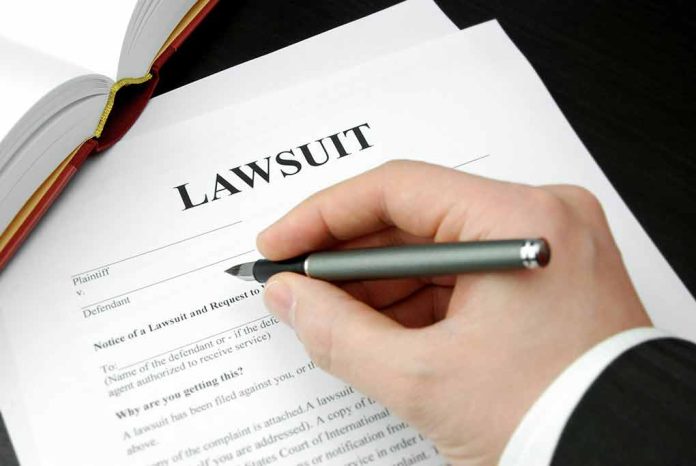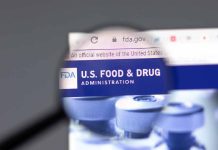
The Department of Justice files a nationwide lawsuit against CVS Pharmacy, accusing the company of fueling the opioid crisis through unlawful prescription practices.
At a Glance
- DOJ has sued CVS for allegedly violating the Controlled Substances Act and False Claims Act.
- CVS has been accused of filling invalid opioid prescriptions and ignoring red flags.
- The lawsuit claims CVS prioritized profits over patient safety.
- CVS denies the allegations, calling the lawsuit “misguided.”
DOJ Takes Aim at CVS in Nationwide Lawsuit
The U.S. Department of Justice has launched a legal offensive against CVS Pharmacy Inc., filing a civil lawsuit that accuses the pharmacy giant of unlawfully dispensing massive quantities of opioids and other controlled substances. The lawsuit, which spans the entire nation, alleges that CVS violated both the Controlled Substances Act and the False Claims Act from October 17, 2013, to the present day.
According to the DOJ, CVS filled prescriptions lacking legitimate medical purpose, including dangerous opioid combinations known as “trinity cocktails.” These cocktails typically consist of an opioid, a benzodiazepine, and a muscle relaxant, a combination that can be particularly hazardous when misused. The government’s complaint also accuses CVS of filling thousands of prescriptions from “pill mills,” contributing significantly to the ongoing opioid crisis in the United States.
#BREAKINGNEWS: RI Federal court filing: U.S. Attorney Cunha, Justice Department allege CVS knowingly dispensed massive quantities of opioids and other controlled substances nationwide to fuel profits at the expense of public health and safety. https://t.co/K4fs6B1ToM
— US Attorney RI (@USAO_RI) December 18, 2024
Allegations of Profit Over Safety
One of the most damning accusations in the lawsuit is that CVS allegedly ignored red flags and pressured pharmacists to fill prescriptions quickly, prioritizing speed and profits over patient safety. The DOJ claims that CVS refused to implement compliance measures recommended by its own experts to reduce invalid prescriptions, further exacerbating the problem.
“Our complaint alleges that CVS repeatedly filled controlled substance prescriptions that were unlawful and pressured its pharmacists to fill such prescriptions without taking the time needed to confirm their validity,” Principal Deputy Assistant Attorney General Brian M. Boynton stated.
The lawsuit seeks civil penalties, injunctive relief, and damages to address CVS’s practices and prevent future violations. If found liable, CVS could face substantial financial penalties and be required to implement stringent new protocols for dispensing controlled substances.
CVS Denies Allegations, Vows to Defend Itself
In response to the lawsuit, CVS has come out swinging, categorically denying the allegations and vowing to defend itself vigorously. Amy Thibault, a spokesperson for CVS, called the lawsuit “misguided” and emphasized the company’s role as an industry leader in fighting opioid misuse.
“We strongly disagree with the allegations and false narrative,” said Amy Thibault, director of external communications for CVS. “Each of the prescriptions in question was for an FDA-approved opioid medication prescribed by a practitioner who the government itself licensed, authorized, and empowered to write controlled-substance prescriptions.”
Thibault also highlighted the dilemma pharmacists face in dispensing opioids, caught between the need to provide legitimate pain management and the responsibility to prevent misuse. CVS claims that the prescriptions in question were for FDA-approved medications prescribed by licensed practitioners.
Implications for the Pharmaceutical Industry
This lawsuit against CVS, the largest pharmacy chain in the U.S. with over 9,000 locations, marks a significant escalation in the government’s efforts to hold pharmaceutical companies accountable for their alleged role in the opioid crisis. It follows years of scrutiny and legal battles involving various players in the pharmaceutical industry.
“Opioid deaths remain a scourge on communities across Rhode Island and the nation, robbing families of loved ones and leaving a path of devastation in their wake,” said U.S. Attorney Zachary A. Cunha for the District of Rhode Island.
The case, initiated by whistleblower Hillary Estright under the False Claims Act’s qui tam provisions, allows private parties to sue on behalf of the U.S. government. This mechanism has been increasingly used to bring attention to alleged wrongdoing in the pharmaceutical industry.
Sources
- CVS knowingly dispensed ‘massive’ amount of invalid opioid prescriptions: DOJ lawsuit
- Justice Department Files Nationwide Lawsuit Alleging CVS Knowingly Dispensed Controlled Substances in Violation of the Controlled Substances Act and the False Claims Act
- DOJ files complaint against CVS for facilitating unlawful sale of prescription opioids

















